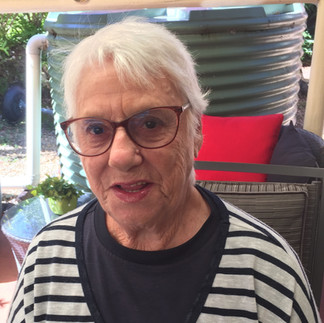FEATURE - Acknowledging our volunteers
Updated: May 20, 2024
Volunteers contribute around $84 billion to the Queensland economy each year, and with the annual Queensland Volunteering Awards being celebrated in May, Judy Fredriksen spoke to three local volunteers – Sue Davern, David Courtney and Kathy Patterson – to find out how giving up their time to help others brings them gratification.
by Judy Fredriksen
The Blackall Range provides an enchanting lifestyle, a captivating diorama of tourism, boutique agriculture, café culture, music and the arts.
The picturesque vistas and relaxed vibe is popular with retirees who like to stay engaged mentally and socially, so for them, volunteering is a perfect solution. In fact, the number of volunteers along the Blackall Range is almost double that of the state and national averages.
While many readers will automatically relate to volunteering annually at one of our numerous music, arts, agricultural and recreational events, the one organisation which plays a vital role in the wellbeing of our aged residents, but relies heavily on volunteers all year round, is RangeCare.
With well over 100 volunteers, these generous folk span at least ten different areas of RangeCare, including the social connections program, IT help, Meals on Wheels deliveries, the RangeCare Op Shop, transport, day respite centres, gardeners, kitchen assistants, groups, as well as the board of directors, says Hannah Eichhorn, RangeCare Volunteer Coordinator.
Sue Davern, who has been a volunteer with RangeCare for five years, says she loves “to assist somebody else, and meet other people … people who are probably not socialising as much as they should. It’s nice to have interaction with older people and being older myself, you can relate to them more.”
Over time, Sue has helped with Meals on Wheels and taken clients to ‘Circle Talk’ where some of the isolated people can sit around and have a good old natter.
“With Meals on Wheels,” she explains, “some of the people who are quite elderly, just want to have a bit of interaction. Because Meals on Wheels may be the only contact they have. So you sort of put yourself out a little bit and spend an extra few minutes with them, and ask after them and things like that.”
While Sue also takes a lady to her book club each month, she wanted her grandchildren to understand the importance of having consideration for those less well off than themselves.
“When my grandchildren were on school holidays, they used to come up and visit, so I would take them down to the Salvation Army at Nambour just to show them how the situation is with people who weren’t as well off.
“It was a good insight for my grandkids to see both sides of the coin - what (gifts) they got from the parents and grandparents, and what (other) people don’t get.”
Retired high school teacher, David Courtney, relishes the chance to spend time with an older client, a gentleman originally from the Netherlands, who was a child during WWII.
“Part of the interest for me is that every day is an opportunity to learn something. His life story is really quite fascinating. It's a privilege to be a part of that story, and to be trusted to continue with visits and his storyline.”
Apart from that, David also derives a sense of belonging.
“You actually do get to interact with other parts of the community out there. I’ve got to meet different neighbours who do various things to help the client out. You establish a relationship with these other people in the community.”
Another former teacher who has taught at a variety of locations in the United States and Australia, Kathy Patterson, has the important role of helping older clients with technology.
“I just teach them whatever they want to know. For instance, somebody might want to move their pictures from their iPhone to their computer; or someone might want to know how to make attachments onto an email; or (in one case), I’m helping a client write her memories into a format that will be published into a book for her children.”
Kathy enjoys volunteering because, “It’s very fulfilling. It’s very rewarding in a personal way and you do feel like you are making a difference. I think that’s the important thing. I get good feedback from clients, so I feel like I’ve done a good job of teaching them what they needed to know, and that’s rewarding for me.
“When they want to know how to do something I’ll show them how to do it, and have them write down the steps. Next we'll follow the steps together, then I’ll have them do it all on their own – just by following the steps they wrote down – to make sure they can do it alone at home.”
The verdict about the joy of volunteering is unanimous; Sue, David and Kathy all say they gain great personal satisfaction from helping others, even more so when they are pushed outside their own comfort zones to overcome a problem.
But as David says of volunteering, “It’s got to work three ways … it’s got to work for us, the volunteers; it’s got to work for the organisation, and it’s got to work for the clients.”
Kathy agrees, “It needs to match your values, interests and capabilities.”
So to all those people in our extensive community who volunteer, no matter how little or how often, know that your contribution is valued and appreciated. Thank you!
-01.png)

























Comments